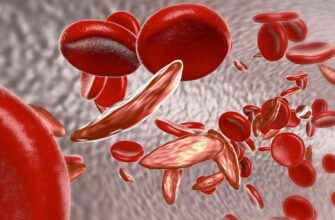Fevers are a common occurrence and are often indicative of an underlying medical condition. Understanding the causes, symptoms, and treatments for fevers can help you manage your symptoms effectively.
What is a Fever?
A fever is defined as an increase in body temperature above the normal range of 98.6°F (37°C). A fever is typically considered significant if the body temperature exceeds 100.4°F (38°C).
Causes of Fevers
Fevers can be caused by a wide range of factors, including infections, inflammatory conditions, and autoimmune disorders. Some medications and vaccinations can also cause fevers.
Symptoms of Fevers
Symptoms of a fever can include a high body temperature, chills, sweating, headache, muscle aches, fatigue, and weakness. In severe cases, a fever can also cause seizures or confusion.
Treatments for Fevers
The most effective treatment for a fever depends on the underlying cause. Over-the-counter medications such as acetaminophen or ibuprofen can be used to reduce fever and relieve associated symptoms. Other treatments may be necessary if the fever is caused by an underlying medical condition.
When to See a Doctor
It is important to seek medical attention if a fever lasts longer than three days or is accompanied by other symptoms such as severe headache, difficulty breathing, or chest pain. In children, it is also important to seek medical attention if a fever is accompanied by a rash, stiff neck, or refusal to drink fluids.
Preventing Fevers
Fevers can be prevented by practicing good hygiene, such as washing your hands regularly and avoiding contact with people who are sick. Staying up to date on vaccinations can also help prevent fevers caused by certain infections.
Complications of Fevers
In rare cases, a fever can cause complications such as dehydration, seizures, or organ damage. It is important to seek medical attention if you experience any severe symptoms.
Home Remedies for Fevers
Home remedies such as drinking plenty of fluids, getting adequate rest, and using a cool compress can help reduce fever and relieve associated symptoms. However, it is important to seek medical attention if a fever persists or is accompanied by severe symptoms.
Fevers in Children
Fevers are common in children and are often caused by viral infections. It is important to monitor a child’s fever and seek medical attention if it persists for more than a few days or is accompanied by other symptoms.
Fevers and COVID-19
Fevers are a common symptom of COVID-19 and can be indicative of an underlying infection. It is important to seek medical attention if you experience a fever or other symptoms associated with COVID-19.
Conclusion
Fevers are a common occurrence and can be caused by a wide range of factors. Understanding the causes, symptoms, and treatments for fevers can help you manage your symptoms effectively and seek medical attention if necessary. If you are experiencing a fever, it is important to stay hydrated, get plenty of rest, and seek medical attention if necessary.











